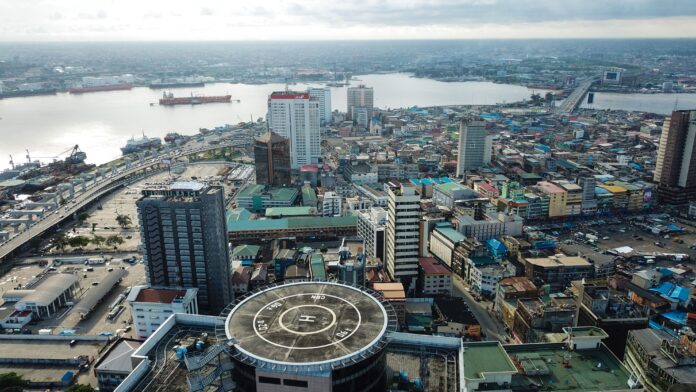TRANSPORTATION:
● The Federal Government has stated that roads of about 794km have been prioritized for construction by companies under the Road Infrastructure Development and Refurbishment Investment Tax Credit Scheme. The companies include Dangote Industries, Unilever, Julius Berger, MTN, BUA Group of Companies, Access Bank, Transcorp, Lafarge and GZI Industries. This is in line with the government’s objective of improving road infrastructure.
● The Federal Executive Council (FEC) has approved the re-introduction of road tolls on federal highways. Vehicles will pay between N200-N500 per trip while diplomatic, military, para-military vehicles, tricycles, and motorcycles will be entitled to a full 100% exemption.
TAXATION:
●The Federal Inland Revenue Service (FIRS), in a statement titled, “Rivers Judgment: FIRS Urges Taxpayers to Continue to Pay VAT”, argued that since it has already appealed the Rivers judgment seeking a stay of execution order, the status quo ante subsists on the VAT collection authority, hence taxpayers should continue to pay their VAT to it.
BUDGET & REVENUE
● The Ministries of Works and Housing, Defence, Health and Education are to get the highest capital allocation in the 2022 federal budget. This is according to the 2022 Budget Call Circular released on Tuesday (24/08/2021). Details of the capital allocation as contained in the budget call circular signed by the Minister of Finance, Budget and National Planning, Mrs Zainab Ahmed, showed that the Ministry of Works and Housing was to get the highest allocation of N352.65bn which represents about 20 per cent of the entire N1.75tn capital allocation for MDAs in the 2022 budget. This is followed by the Ministry of Finance, Budget and National Planning with N158.07bn while Defence with N128.94bn, Transport with N12.6bn; Health with N108.29bn and Education with N100.75bn.
● The Revenue Mobilization Allocation and Fiscal Commission (RMAFC) has stated that the new revenue sharing formula will be presented to President Muhammadu Buhari by year-end. Proposal for new revenue allocation formula for the three tiers of government was first made by the commission in August 2001. The current revenue sharing formula, after first-line charges that include the 13.5% derivation, debt service, etc. are deducted and allocates 52.68% to the Federal Government, 26.72% to States and 20.60% to Local Governments. This was approved in 1992 when there were just 30 states. The revision will include the 6 other states that have been added since then and ensure a more equitable distribution of revenue across the three tiers of government.
POWER:
● The Nigerian government has said that it will provide up to 4 million meters to Nigerians in the second phase of its National Mass Metering Programme (NMMP). This initiative will drastically reduce estimated billing by the distribution companies (DISCOs). A statement from the office of the Special Adviser on Infrastructure to the President, Ahmad Zakari, said arrangements to commence the metering process have been completed. The statement noted that the next phase of the initiative will ensure consumers are billed appropriately for the electricity they consume by installing meters free of charge in households and business premises that are currently unmetered.
TELECOMMUNICATIONS:
● MTN Nigeria’s shareholders have approved an equity shelf programme to sell up to 14% of MTN Group investment in Nigeria. However, the sale will be subject to market conditions over the medium term.
FINANCE:
● The Central Bank of Nigeria (CBN) has threatened to sanction Microfinance Banks (MFBs) going beyond the mandate of their operating licence to engage in foreign exchange transactions. The apex bank in a circular to all the MFBs, signed by the Director of Financial Policy and Regulatory Department, Ibrahim Tukur, stated: “The Central Bank of Nigeria (CBN) has observed the activities of some MFBs that have gone beyond the remit of their operating licenses by engaging in non-permissible activities, especially wholesale banking, foreign exchange transactions and others”. These operations by MFBs pose a huge risk to the stability of the financial system.
● The African Development Bank (AfDB) Group announced the 18-month debarment of Sargittarius Nigeria Limited and its affiliates, including Sargittarius Henan Water Conservancy Engineering Limited, with effect from 28 July 2021.
Sargittarius Nigeria Limited is a limited liability company registered in the Federal Republic of Nigeria. An investigation conducted by the Bank’s Office of Integrity and Anti-Corruption established that Sargittarius Nigeria Limited engaged in fraudulent practices during tenders for the construction of water infrastructure in Ibadan, Nigeria, under the Urban Water Supply and Sanitation Improvement Project in Nigeria. The debarment renders Sargittarius Nigeria Limited and its affiliates ineligible to participate in Bank Group-financed projects during the debarment period. Additionally, the debarment qualifies for cross-debarment by other multilateral development banks under the Agreement for Mutual Enforcement of Debarment Decisions, including the Asian Development Bank, the European Bank for Reconstruction and Development, the Inter-American Development Bank and the World Bank Group. At the expiry of the debarment period, Sargittarius Nigeria Limited will only be eligible to resume participation in African Development Bank Group-financed projects on the condition that it implements an integrity compliance program consistent with the Bank’s guidelines.
Read Also: 6 Interesting Features About The New UBA App
REST OF AFRICA:
GHANA:
MTN Ghana announced on 24th August 2021, its intention to roll out 5G network services across Ghana in 2022. The company plans to invest USD ($)200 million to upgrade its wider infrastructure in the country, which includes boosting the existing 2G, 3G, and 4G networks, and establishing a 5G network. Once fully rolled out, 5G will provide users with more advanced internet speeds, which could be critical to a range of industries and service providers in Ghana.
TANZANIA:
The National Bureau of Statistics (NBS) has said the country’s industrial sector is dominated by small and medium industries. The NBS preliminary study aimed to assess the current industrial sector shows that large industries make up less than 10%of the 80,969 total industries in the country as of July this year. Briefing the media in Dar es Salaam on Monday, the Industry and Trade Minister Prof. Kitila Mkumbo said the industries are divided into four groups where 77,730 are micro and small scale industries, 684 medium and 618 large industries.
UGANDA
South African retail company, Shoprite, announced on 23rd August 2021 that it will withdraw its business from Uganda. The company currently operates five stores in the country, employing roughly 300 people. The decision has come after a review of Shoprite’s long-term options in Africa, amid continent-wide currency devaluations, lower commodity prices, and high inflation.
There are additional indications that Uganda’s protectionist domestic economic policies – characterised by local content requirements – have dampened the operating environment, while subdued local economic activity has benefitted traditional grocery stores with lower average prices. To this end, the decision reflects both continental and Uganda-specific concerns relating to retail operations by foreign firms.
DEMOCRATIC REPUBLIC OF CONGO
Minister of Mines, Antoinette Nsamba, announced in a media briefing that the government is exploring the option to reassess all mining contracts in the country. As per Nsamba, the revision of mining contracts aims to allow everyone to win, “especially the DRC and its people who must directly benefit from revenues from mining resources”.
GAMBIA
The United States (US) and Gambia signed an agreement that will allow for increased development cooperation between the two countries. As part of the agreement, the United States Agency for International Development (USAID) has committed USD ($)15 million to Gambia over the next five years. The funds will be devoted to strengthening the Gambian electoral system, citizens’ political freedoms, civil society, government fiscal management, and transparency. The agreement is reflective of the continued support offered by the US to Gambia in the areas of governance and economy.
UBA offers corporate banking services to ease to your day-to-day business needs.
To get started, click here.




























